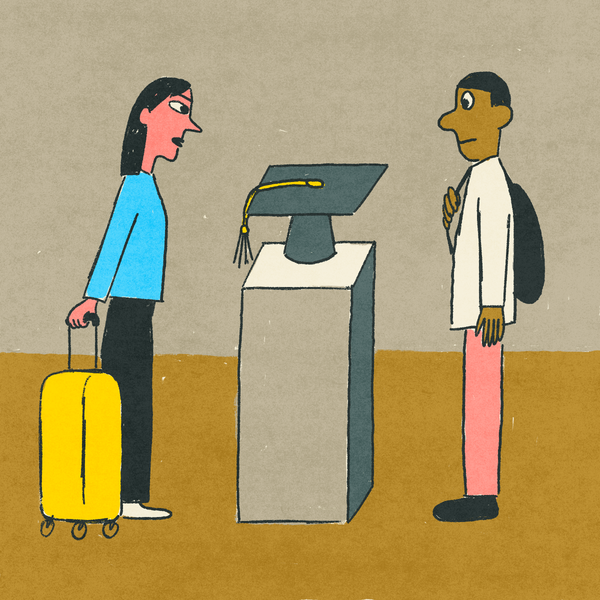Articles in this Cluster
01-06-2025
European companies are reassessing U.S. business travel amid stricter border controls, volatile policy signals under the Trump administration, and reports of detentions and deportations. While many trips proceed normally, firms in sensitive sectors are issuing new guidance: using “clean” or burner devices, minimizing online footprints, preparing for aggressive questioning, opting to enter via Canada, or shifting to virtual attendance. A GBTA survey found 29% of global travel buyers expect reduced 2025 business travel to the U.S. due to policy on travel and tariffs, alongside declining sector optimism. The climate of uncertainty—amplified by enhanced visa scrutiny, social media monitoring, and a new “Catch and Revoke” policy that cancels visas after any legal infraction—is prompting some NGOs, academics, and professionals to delay or avoid U.S. trips, potentially denting business travel revenues and broader tourism spending.
Entities: European companies, U.S. border controls, Trump administration, GBTA, business travel • Tone: analytical • Sentiment: negative • Intent: inform
01-06-2025
CNN reports a growing “brain drain” from the United States as the Trump administration’s deep cuts to federal research funding, attacks on elite universities, visa limits for international students, and ideological interventions push scientists and scholars to leave. Agencies like NIH and NSF have seen billions in canceled grants, with proposed steep budget reductions ahead, and Harvard faces frozen federal funds and enrollment restrictions for international students amid legal battles. Other countries are rapidly capitalizing: the EU, Canada, Norway, Singapore, Australia, France, and Hong Kong are launching incentives and fast-track programs to recruit top U.S.-based researchers and students. Experts warn this shift threatens America’s long-held scientific dominance, built on robust public and private R&D and immigrant talent, and could transform a U.S. brain drain into a global brain gain.
Entities: United States, Trump administration, National Institutes of Health (NIH), National Science Foundation (NSF), Harvard University • Tone: analytical • Sentiment: negative • Intent: warn
01-06-2025
The article argues that while the Trump administration’s punitive attempt to restrict Harvard’s foreign enrollment is crude and harmful, the broader question of international students in U.S. universities is legitimate. Internationalization brings clear benefits—raising academic quality, bolstering research and economic growth, enhancing soft power, and often leading to long-term contributions by immigrants. However, it also intensifies competition for limited seats, can skew campuses toward wealth and elite preparation, and may offer less meaningful diversity than admitting more socioeconomically varied American students. The author urges a balanced post-Trump approach: preserve the advantages of international enrollments while expanding opportunities for a wider range of domestic applicants, acknowledging the trade-offs rather than denying them.
Entities: International students, U.S. universities, Trump administration, Harvard University, New York Times • Tone: analytical • Sentiment: neutral • Intent: analyze
01-06-2025
The piece argues that despite stark stylistic and policy differences, Donald Trump’s populist conservatism draws heavily from William F. Buckley Jr.’s playbook. Buckley built a counterrevolution against the “liberal establishment” in academia, media, and the administrative state, framing politics as cultural warfare and mobilizing outsiders against elite orthodoxy. His early attacks on universities (God and Man at Yale) and defense of McCarthy (McCarthy and His Enemies) pioneered strategies later echoed in Trump’s assaults on higher education, the “deep state,” and “fake news.” While Buckley’s patrician style contrasted with Trump’s, both centered their movements on challenging elite consensus, appealing to “the people,” and redefining conservatism as a broader cultural revolt—an approach that helped pave the way for Trump’s dominance of the GOP.
Entities: William F. Buckley Jr., Donald Trump, New York Times, liberal establishment, academia • Tone: analytical • Sentiment: neutral • Intent: analyze
01-06-2025
The Trump administration’s escalating restrictions on Chinese students—visa revocations for those tied to the Communist Party or “critical fields,” suspended visa interviews, social media vetting, and rhetoric to cut international student shares at elite universities—are driving Chinese families to reconsider U.S. education. With policy unpredictability and legal tussles over universities’ ability to host internationals (e.g., Harvard), many parents are pivoting to alternatives closer to home or other Western countries, weighing risk, returns, and stability over the traditional “American dream.”
Entities: Trump administration, Chinese students, Communist Party, visa restrictions, Harvard University • Tone: analytical • Sentiment: negative • Intent: inform
01-06-2025
The article examines the Biden administration’s plan to revoke a record number of Chinese student visas amid escalating national security concerns, sparking backlash from universities and experts. Supporters argue the policy counters espionage and technology transfer tied to China’s government, particularly in sensitive STEM fields. Critics say the move is overly broad, harms academic research and U.S. soft power, and risks pushing top talent to competitor countries. With roughly 277,000 Chinese students in the U.S., universities warn of significant financial and scientific impacts, while the debate highlights the challenge of balancing security with openness in higher education.
Entities: Biden administration, Chinese students, United States, universities, national security • Tone: analytical • Sentiment: neutral • Intent: analyze
